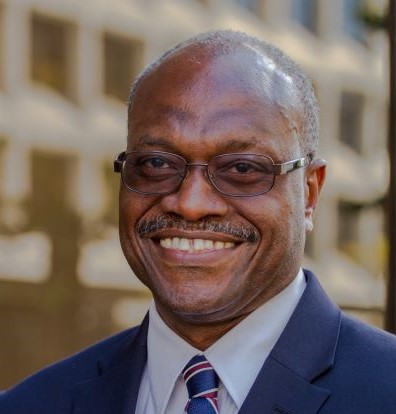August 16, 2024
The 2024 Olympic Games were inspiring and memorable. The athletes performed amazing feats that seemed like they shouldn’t be humanly possible—over and over again. Forty-seven records were broken, and five countries were first-time medal winners. As someone whose career is dedicated to promoting racial equity, I couldn’t help but also see the Olympics through this lens.
Part of the beauty that I saw when I watched the Games was the ease and comfort that the athletes of different racial backgrounds had when playing together, and the respect that they had when competing against one another. We saw an example of what I wish existed in all aspects of life in the United States.
The 2024 medal-winning U.S. artistic gymnastic teams—both the women’s and the men’s—were multiracial, as were many teams from other countries. This racial integration should be a more common sight in U.S. schools and neighborhoods.
Unfortunately, at the school and neighborhood levels, the United States is still fairly well-segregated, with the Black population being the most segregated group. Segregation matters because it is a means by which the United States limits some groups while providing advantages for others. As a researcher from the U.S. General Accountability Office stated, “large portions of minority children [are] not only attending essentially segregated schools, but schools that have less resources available to them.” Researchers continue to find that Black and Hispanic neighborhoods have less resources for children’s economic success.
As a Black person, the other thing that I loved about the 2024 Olympics was seeing people of African descent excelling in a wide variety of sports. Of course, we are accustomed to seeing Black excellence in sports like basketball and track and field. But this year the U.S. women’s rugby team, which won an Olympic medal for the first time, also had Black players. From judo and fencing to volleyball and Greco-Roman wrestling, athletes of African descent were bringing Olympic medals back to their home countries.
I am happy to see that the silly idea that Black people do not or cannot swim is being slowly eroded by the Black members of the U.S. Olympic swimming and water polo teams. Of course, the real issue here is why Black Americans have not been granted the same opportunities to learn to swim as White Americans.
Black athletes also excelled in sports in which they were completely absent when I was a child. In the 1970s and 1980s, U.S. Olympic gymnastics was a completely White space. After James Kanati Allen in 1968, it wasn’t until twenty years later that the world would see another Black American gymnast compete in the Olympics. (A Black American man and woman made the 1980 U.S. Olympics gymnastics teams, but the United States boycotted the games that year.) It was 1992 when the first Black woman competed for the United States in gymnastics.
The past few years have seen an attack on programs that seek to increase racial diversity and equity. The Olympics, though, provide a remarkable example of the kind of world that the best of those programs work to create. The U.S. Olympic teams show us that when Black people have access to the needed resources and are given the opportunity to succeed, they do. Black people can excel at anything. This applies to all aspects of life, not just sports.
For this reason, in my work, when I see an occupation in which Black people are severely underrepresented, I know that something is wrong. Black people are either not being given access to the resources they need, or to the opportunity to succeed, or both.
The United States is a very diverse, multiracial country. This is the reality. America can continue to invest in and develop the talents of people of all racial backgrounds, or it can pursue the vision favored by the movement against Diversity, Equity and Inclusion policies – one that would turn back the clock to the time when only all-White teams were allowed to succeed. One path leads to a stronger, more successful, and more unified country. The other, to paraphrase Abraham Lincoln, leads to a multiracial country divided against itself. I hope the magnificent 2024 Olympic Games will remind us which is the right choice.






